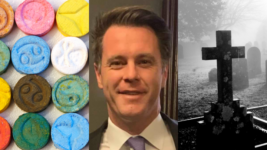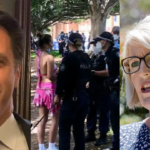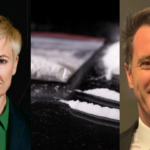NSW Premier Won’t Introduce Pill Testing, Despite Continuing Deaths and Calls From His Own Party

“Politics often presents the choice between the unpalatable and the disastrous,” said former NSW Labor premier Bob Carr, during a speech he gave to a 2022 Sydney drug law reform conference last year.
Indeed, Carr’s alternates sum up exactly the choice current NSW premier Chris Minns is facing.
In the wake of two drug-related deaths at a NSW music festival over the October long weekend, the leader of the NSW Labor government has since announced that he hasn’t completely ruled out pill testing, but he’ll first observe what happens in jurisdictions where the intervention is operating.
This determination differed from a fortnight prior when Minns refused pill testing outright. Although now, all Minns has done is buy himself a little more time before the disastrous part of his choice, more drug deaths at festivals, present themselves, unless he deals with what he finds unpalatable.
Over recent months, it’s become obvious that despite pre-election promises, Minns does have an aversion to implementing drug law reforms.
However, one of his Labor colleagues has, in speaking out of the necessity of his conscience, thrown the new state leader a lifeline on this issue.
As on 19 October, Labor MLC Cameron Murphy delivered a speech, outlining why pill testing should be trialled this summer, prior to a slated drug summit, as not only would it “likely save lives during the upcoming festival season” but it would further provide data to inform the coming conference.
A voice of reason
“I propose that we undertake a pill testing trial in NSW over the period of the 2023/24 summer at major music festivals,” Murphy told the upper house last Thursday night. “To do so would not require new legislation and, in fact, could be achieved through existing frameworks.”
“My immediate fear is that more people will die this summer if nothing is done,” continued the Labor MLC, who’s been advocating for drug law reform for three decades. “It is morally wrong not to act when we know this and have the chance to protect people in NSW.”
As NSW Greens MLC Cate Faehrmann recently told Sydney Criminal Lawyers, “Labor has promised to hold a drug summit” in the lead up to the last two elections, “just like Bob Carr did back in 1999”, yet unlike his predecessor, Minns has since backed away from the controversial policy area.
In response to an August ACT notice regarding new laws about to take effect there this Saturday, which involve drug possession and use of certain illegal substances being decriminalised, Minns said that NSW wouldn’t follow Canberra’s lead and the summit would be pushed back to late in the term.
“In order to make evidence-based, long-term decisions about drug policy that serve health outcomes, we must gather evidence,” Murphy continued in regard to the drug summit, and he added that trialling pill testing would provide the necessary evidence regarding local circumstances.
Avoiding the evidence
The pill testing debate has raged in NSW since late 2015, following a spate of drug-related festival deaths nationwide over the previous year, and the campaign for drug checking services escalated further over the 2018/19 festival season as it began with two drug deaths at an event.
And just like Mike Baird before her, then premier Gladys Berejiklian refused calls for the pill testing, which is a method that reduces the harms associated with drug use that has been successfully saving lives in certain European countries where it’s operated since the mid-1990s.
Berejiklian’s approach to the September 2018 Defqon.1 festival deaths was to convene an expert panel to hold a drug inquiry, which she issued it with a directive not to consider pill testing, and following its report, the premier attempted to dismantle the entire festival industry as a solution.
But when Berejiklian faced the question of trialling pill testing, all Australian jurisdictions agreed that services allowing civilians to test illicit drugs went against the grain because instead of conveying the “just say no” to drugs approach, the concern was this intervention encouraged illegal drugtaking.
The social climate that Minns is facing, however, is much changed. Not only is the ACT decriminalising illegal drugs right now, but Canberrans can also test such drugs legally at a fixed site drug checking service called CanTEST that Pill Testing Australia has been operating since mid-2022.
And the evidence to the benefits coming out of CanTEST are obvious, as, over its first six months operating, of the 600-odd substances tested, one in ten of these drugs were discarded once the owner was informed of their contents, which highlights that pill testing actually reduces drugtaking.
Another benefit that Murphy pointed to last week is that drug checking services result in the collection of data regarding the illicit drug market in an area, and one key outcome of this is that authorities are then able to provide public warnings when a dodgy batch of drugs is circulating.
Sydney drug reform group Unharm sent out a statement this week, outlining that NSW is on something of a precipice, as the state government is “feeling the heat” in regard to trialling pill testing, and the main thing holding NSW Labor back from following its ACT counterpart is its leader.
“Minns is still unsure – he’s scared of losing public support,” Unharm makes clear. “He fears the uproar from shockjocks and conservative media. That’s not good enough.”
“With the festival season underway, we just can’t sit idly by and risk more lives being lost,” the harm reduction group underscores. “We need to keep pushing to get Minns over the line.”
To save lives or votes or lose both
The upcoming summer is set to be long, hot and climate-driven and it’s the first since the pandemic restrictions are all but forgotten, so it’s likely to be the biggest festival season since that of 2018/19, which saw five people die at events in total as the then premier avoided pill testing at that cost.
And this season has begun in the exact same way as that of 2018/19, with two drug-related deaths at a Sydney-based festival held in late September, with the premier denying any chance of pill testing in response, although he’s since watered that stance down.
In early September, Minns also made the admission that he felt he had “no mandate” to even consider drug decriminalisation, despite Uniting NSW.ACT and 70-odd civil society organisations having been campaigning for this change since 2018 under the banner of Fair Treatment.
The outcry over Minns attempt to take decriminalisation off the drug summit agenda was so great that the premier pitched a system of drug depenalisation earlier this month, which would provide NSW police with the option to issue up to two fines to an individual over personal drug possession.
Minns’ depenalisation alternative was a recommendation made by the NSW inquiry into ice as a backup to its primary suggestion of decriminalisation. And current Coalition leader in opposition Mark Speakman twice recommended this system, whilst he was NSW attorney general.
That has made all the difference
Carr made his comment about “the choice between the unpalatable and the disastrous”, as he was referring to a late 1990s decision he faced, as there was a heroin crisis plaguing Sydney, and he was set to take the strong law enforcement path until one of his ministers pointed out another option.
The late Ernie Page told Carr about Dr Alex Wodak, who was pushing for a harm reduction approach to drugs, which included a medically supervised injecting room for Sydney, so that people who used drugs intravenously could do so in a secure environment with medical assistance on hand.
Carr, like Minns, had a choice between a policy that would save lives but could also prove difficult in terms of how the public responded to it or to simply police further overdose deaths. And he chose to save lives at the risk of future votes, which saw the Uniting-run injecting facility open in Kings Cross.
Today, Carr lists trialling the medically supervised injecting centre as one of his greatest achievements in office, as it’s since saved thousands of lives, while Minns is sitting on his hands worried about losing those future votes, despite obviously being aware of the evidence before him.
And now one of his party has taken the brave step to speak out with an alternative to the corner his leader has backed himself into, as the deaths have already started mounting, and all our premier needs to do now is take up the offer of a new way forward his fellow Labor colleague has presented.







